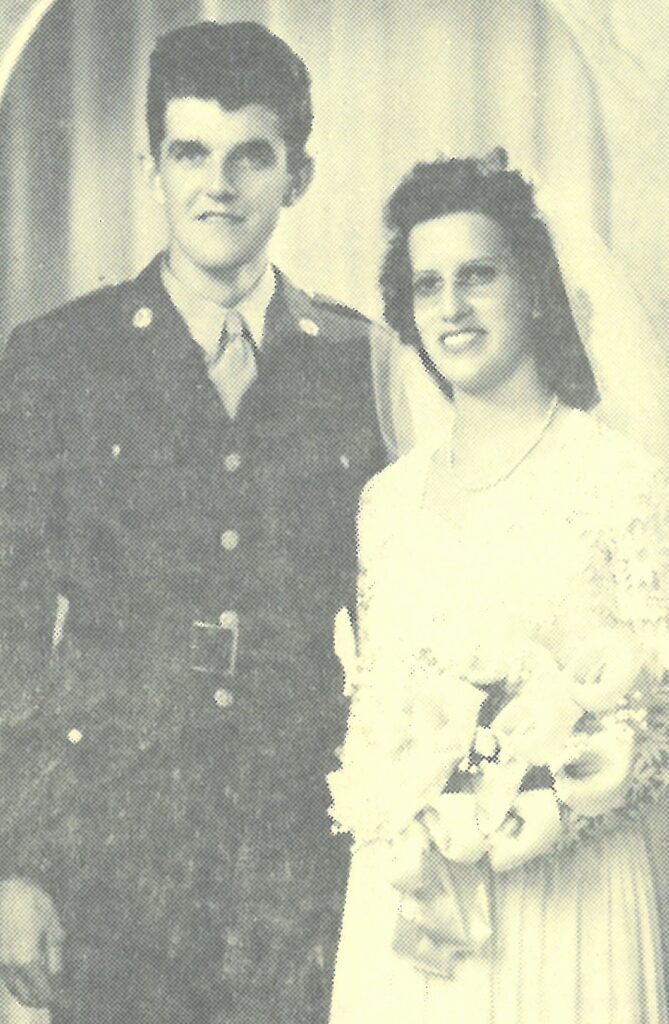
Arnold and Leona Anderson 1944
clay county histories
Markus Krueger | Program Director HCSCC
America was called the Arsenal of Democracy during World War II. The Atlantic and Pacific are mighty big moats that kept Nazi Germany and Imperial Japan away from US and Canadian factories that supplied the Allies with everything from bullets to B-17 bombers, and US and Canadian farms that fed the American, British, Russian, and Chinese people. North America was not, however, immune from invasion.
In June of 1942, Imperial Japanese forces took the islands of Attu and Kiska, part of Alaska’s Aleutian Island chain. Combat engineer Arnold Anderson was part of the force sent to take back this American soil. Growing up in Hawley gave Anderson an advantage over many soldiers in Alaska: he was used to hard weather.
Almost twice as many soldiers were injured by weather than by combat in Alaska. “It doesn’t rain in the Aleutians,” went a GI joke, “it rains in Siberia and blows over.”
The Americans invaded to liberate the island of Attu on May 11, 1943. The Japanese garrison fought ferociously. My great uncle Truman Emberg was there, too. He had moved from Minnesota to Alaska to homestead some land, but found the farming too tough and became a fisherman. When World War II started, Truman joined an outfit called the Alaska Scouts, a reconnaissance team composed of Alaskan trappers, fishermen, and frontiersmen. He gave a gift to his little sister Karin (my grandma): a Japanese officer’s sword. He didn’t say how he got it.
After more than two weeks of fighting on the island, the last surviving Japanese defenders launched a “Banzai” attack rather than surrender. It was the first of many such suicidal charges against Americans in the war. The Japanese attackers overran the American front lines and killed wounded soldiers in their hospital beds. Arnold Anderson’s unit – the truck drivers and road builders of the 50th Combat Engineer Battalion – stopped the attack in hand-to-hand fighting. When the Japanese attackers realized they could not break through the American Engineers, they killed themselves with grenades.
Of more than 2,300 Japanese defenders on Attu, less than 30 surrendered. Almost 1 in 4 Americans on Attu were killed or wounded. Only Iwo Jima had a higher American casualty rate.
On August 15, American and Canadian forces launched their invasion of Kiska. They found the place abandoned. The utter destruction of their garrison at Attu convinced the Japanese Empire to evacuate their 5,000 soldiers at Kiska, slipping through the blockade of American ships under the cover of fog. All of Alaska was once again under the American flag.
Several months after the battle, Arnold Anderson was accidentally run over by a gravel truck on Attu. During his 13-month recovery from the accident, he went home to Hawley to marry Leona Lewis. Arnold Anderson spent the rest of the war guarding POWs in the US. Arnold and Leona made their home in Hawley after the war.

